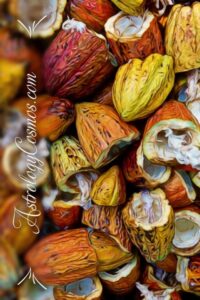Last Updated on January 13, 2023 by Cassandra Nostredame
Herbal medicine is quickly starting to emerge as a respected, modern field. For thousands of years, herbs were one of the primary medical treatments offered. Even today, the World Health Organization estimates that 80 percent of the world's population use of herbs as their primary medical care. The hardest part is finding out where to study to be an herbalist. Since there is no official certification or program for the field, getting an herbal education can be far more complex than it ought to be.
If you are interested in learning more information about how to become an herbalist, then be certain to provide yourself with all the available information that we have to offer on the subject.
Where Can You Study to Be an Herbalist?
The American Herbalists Guild (AHG) offers a list of different schools, but not all of them are top-rated options. When I first entered the field, I spent hours combing through each listing. Some of the programs—although they might have been great in content—had awful spelling and grammar mistakes. It looked like my niece had designed and written the websites, so I was wary about any program that they could offer.
Personally, I settled on the Herbal Academy. They offer courses at a fairly reasonable price (some of the AHG programs cost thousands for just a basic introductory course), and they also included the types of electives and content that I was looking for.
Before you can choose where to study to be an herbalist, you have to decide what your goal is. If you want to use medicinal herbs for yourself, friends or family, then look for an information-rich program at a fair price. If you plan to actually have an herbalist practice, then you are in for a tougher option.
Can You Legally Practice as an Herbalist?
Since modern medicine is just starting to accept herbalism into the fold, the answer to this is a qualified no. Even if you study at a respected herbal school and apprentice for a decade, there are no state certifications or licenses for this field. Instead, you have to get a degree in some other program like naturopathy, traditional Chinese medicine (TCM) or western medicine in order to legally practice. With that said, some herbalists work around this by offering workshops or instruction instead of medical treatments. A trained herbalist can host classes or one-on-one teaching sessions without a medical degree.
Completing a Program and Studying to Become an Herbalist
The main goal of any program should be to learn about how herbs are use, plant identification and other herbology concepts. Since there are no regulatory bodies that can certify or accredit a program, it is up to the student to research the school and what the program offers before you decide where to study to be an herbalist. Once you finish your course, you can work in a career growing herbs, wildcrafting, teaching herbalism, manufacturing herbal products or counseling people about how herbs are used.
Classes can range from short workshops that last a few hours to multi-month courses. Likewise, the price can range from $400 to $15,000.
All of the above are reasons why I originally chose the Herbal Academy. The introductory course is less than $200, and there is also a fun, informative program called the Botany & Wildcrafting Course. The program also offers an Herbarium with all of the information, resources and online books that you need to understand the field. There are many other programs out there, but this one turned out to be the most informative for one of the lowest prices available. Also, if you want to check out the top 20 medicinal herbs for your garden, visit this article.






Leave a Reply
You must be logged in to post a comment.